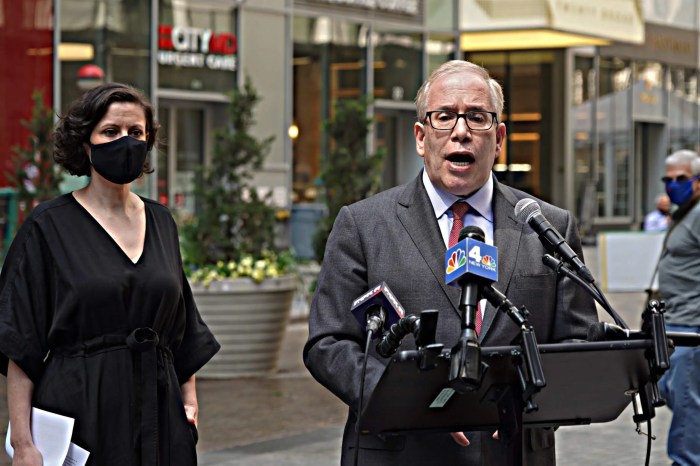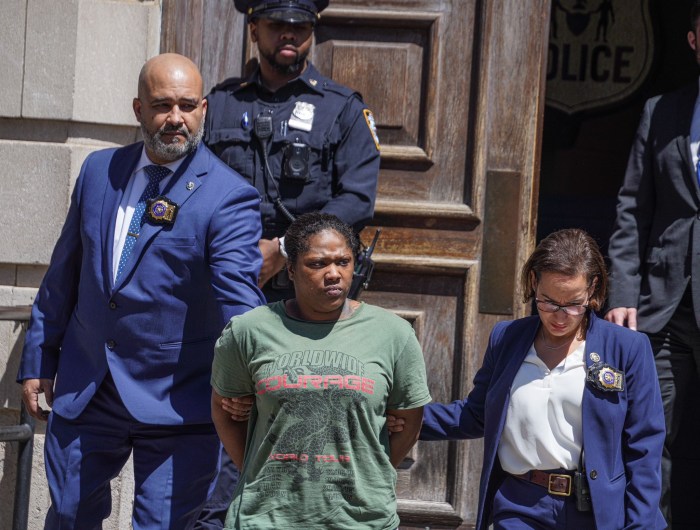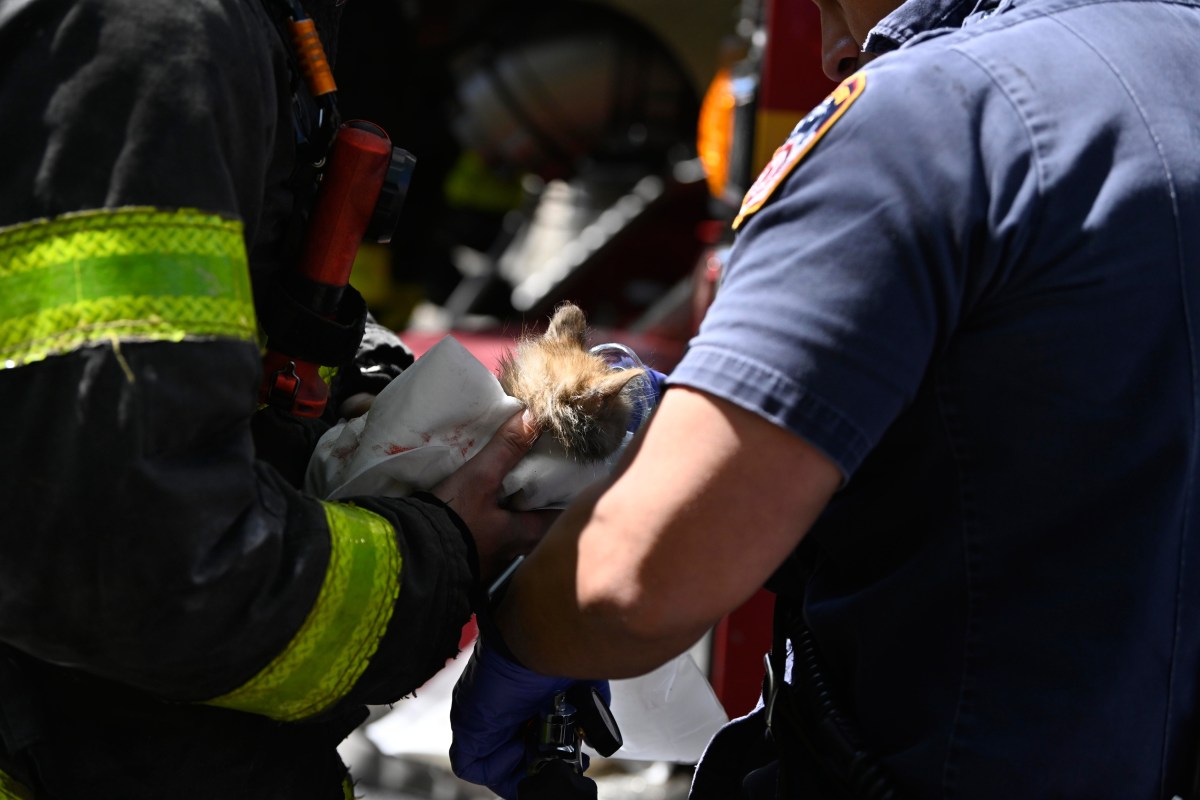
A child brought to Bellevue Hospital Center tested negative for Ebola, hospital officials said Monday, as the nurse held in quarantine in New Jersey was told she could leave for her home in Maine.
Meanwhile, a federal agency announced a new set of guidelines for health workers returning from West Africa.
The child, who sources said was a 5-year-old from the Bronx, had recently returned from West Africa. He was taken to Bellevue on Sunday night after he developed a fever. The hospital said the child would still be tested “for common respiratory viruses.”
“The patient will remain in isolation until all test results have returned,” the hospital said in a statement.
Dr. Craig Spencer, 33, a Doctors Without Borders volunteer who was taken Thursday to Bellevue and diagnosed with Ebola, was still in serious but stable condition, Bellevue said. His fiancee and two friends, all in quarantine, remained symptom-free.
The federal Centers for Disease Control and Prevention announced Monday it is now recommending that those at the most elevated risk of Ebola should stay home for 21 days, avoid public places, refrain from air travel and not go to work.
The measures do not carry the weight of law because the CDC is not a regulatory agency. The new guidelines are still less stringent than those imposed by Gov. Andrew M. Cuomo and New Jersey Gov. Chris Christie, who require health workers and other travelers returning from West Africa to be quarantined for 21 days.
“At the CDC we base our opinions on science and what we learn,” agency director Dr. Thomas Frieden said, referring to evidence-based approaches.
Earlier CDC guidance recommended self-monitoring for 21 days similar to rules in place for health care personnel returning from missions for Doctors Without Borders.
During a telephone news briefing, Frieden said rigorous measures are perceived as punitive by health care workers who have spent time combating the infection in Ebola-endemic regions.
“We are concerned about some policies . . . that are stigmatizing,” Frieden said.
The recommendations call for restricting the movement of those at highest risk, namely health care workers who have had direct patient care in any of the three affected countries — Guinea, Sierra Leone and Liberia — and particularly those health care workers who had an accidental stick by a needle used on an Ebola patient, Frieden said.
Those at highest risk would be allowed to leave their homes to jog in a public park, but would be restricted from public gatherings.
Cuomo, speaking after an education event at Mineola Middle School before the CDC’s new policy was publicly disclosed, criticized the agency.
“We’re in the middle of the problem, and they haven’t even published a protocol, but I did discuss with them . . . [their] protocol and ours is more cautious,” Cuomo said.
“I’m still in disagreement with the CDC’s policy,” Cuomo said. “They set a minimum, we are exceeding their minimum, and I feel good about that.”
Cuomo said it was “reasonable” to ask exposed workers and travelers to remain at home.
And in response to nurse Kaci Hickox’s outspoken criticisms of her quarantine in an isolation tent at University Hospital in Newark, Christie said Monday: “I understand that she didn’t want to be there. She made that very clear from the beginning, but my obligation is to all the people of New Jersey and we’re just going to continue to do that.”
Hickox, still asymptomatic, was transported Monday to Fort Kent, Maine, “via a private carrier, not via mass transit or commercial aircraft,” New Jersey health officials said.
The Maine Department of Health and Human Services said that for those with direct contact with individuals infected with Ebola — like Hickox — the health department would “establish quarantine of the individual in his or her home for 21 days.”
Despite the new federal guidelines, there appeared to be some disconnect within President Barack Obama’s own administration. Maj. Gen. Darryl A. Williams and members of his staff were some of the first troops to go to Liberia to begin to coordinate the U.S. response to the outbreak. They did not have contact with Ebola patients. But, according to The Associated Press, the Army told Williams and his staff before leaving Liberia that they would be isolated near their base in Vicenza, Italy, for 21 days.
So far, Defense Secretary Chuck Hagel has not ordered similar action by the other military services with troops in Africa.
Infectious disease experts remained adamantly opposed to quarantine for asymptomatic health workers. The New England Journal of Medicine, in an editorial published Monday, likened Cuomo and Christie’s action to “driving a carpet tack with a sledgehammer: It gets the job done, but overall is more destructive than beneficial.”
Doctors Without Borders said that the risk of being quarantined for 21 days “has already prompted some people to reduce their length of time in the field.”

















